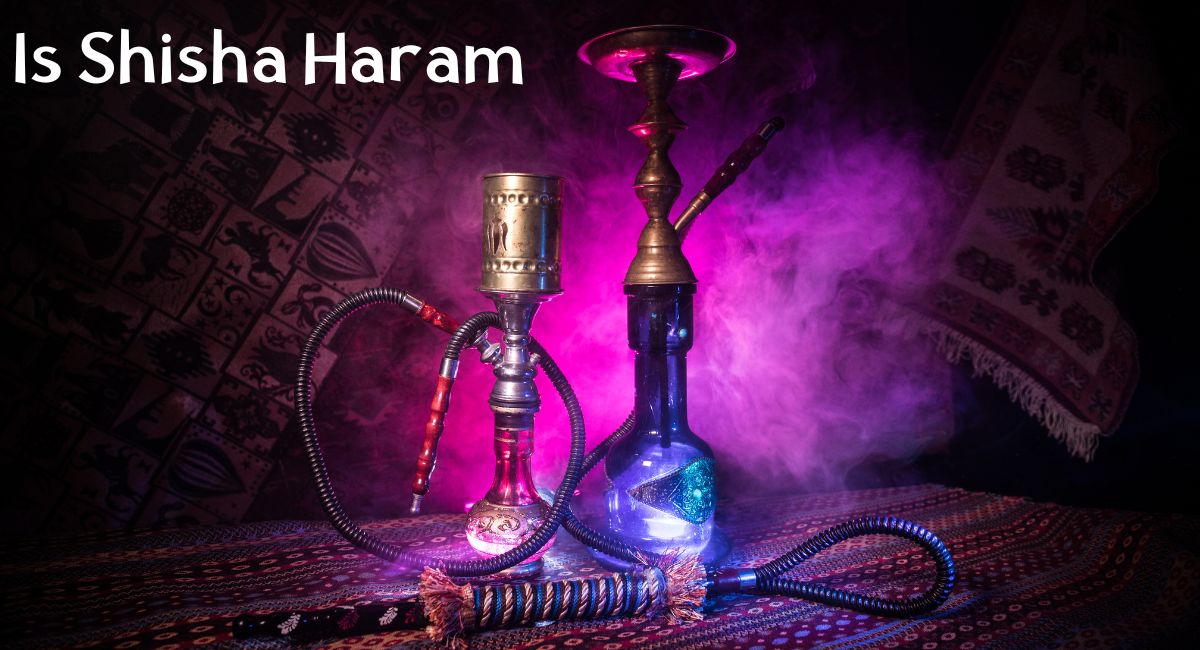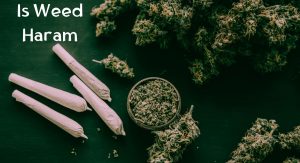The question of whether shisha, also known as hookah or water pipe smoking, is considered haram (forbidden) is a topic of significant debate and discussion within the Islamic community. This centuries-old tradition, popular in many parts of the world, involves smoking flavored tobacco through a communal pipe connected to a water vessel.
While some argue that shisha smoking is a cultural pastime, others raise concerns about its potential health risks and its adherence to Islamic principles.
In this article, we will delve into the various perspectives surrounding the permissibility of shisha in Islam, exploring the religious, cultural, and health-related aspects that contribute to this ongoing conversation.
Key Takeaways
- According to Islamic scholars and sources, shisha smoking is considered haram in Islam due to its harm to one’s body and wealth.
- Quranic verses suggest that intoxicants, including shisha, are prohibited and that Muslims should make choices beneficial to their health.
- Hadiths prohibit harmful substances and actions and can be applied to shisha smoking.
- Fatwas from various Islamic authorities declare shisha as prohibited due to its harm to the body and mind, harmful substances, waste of money and time, and preservation of life and health.
What is Shisha
Shisha, also known as hookah or water pipe, is a device used for smoking flavored tobacco or non-tobacco herbal mixtures. It has a long history and is popular in various parts of the world, particularly in the Middle East, South Asia, and North Africa. Shisha consists of several components:
- Bowl: This is where the flavored tobacco or herbal mixture is placed.
- Charcoal: Burning charcoal is used to heat the tobacco or herbal mixture, producing smoke.
- Hose: A flexible tube that connects to the body of the hookah and through which the smoke is inhaled.
- Water jar: The smoke is passed through water in the base of the hookah, which cools and filters it before it is inhaled.
The process involves heating the tobacco or herbal mixture with the charcoal, and the resulting smoke is drawn through the water and into the hose, where it is inhaled by the user. Shisha comes in a variety of flavors, such as fruit, mint, and various exotic blends, which add a distinctive taste to the smoke.
What Does Shisha Contain
The main ingredients in shisha are:
- Tobacco: Shisha tobacco is a moist, molasses/honey-based tobacco that is smoked in a hookah. It comes in different flavors like apple, mint, cherry, etc.
- Glycerin: Glycerin is added to shisha tobacco to help retain moisture and create smoke. It makes the tobacco smoother and less harsh.
- Molasses/Honey: Molasses or honey is used as a sweetener and binding agent in shisha tobacco. It helps retain flavor and moisture.
- Flavorings: Shisha tobacco contains various flavorings like fruit extracts, blossom extracts or essential oils to give it sweet and pleasant smells and tastes. Common flavors are apple, mint, orange, grape, lemon, strawberry etc.
- Coal: Special coal tablets made from coconut shell or quicklight coals are placed on top of the shisha pot to heat up the tobacco and produce smoke.
- Water: At the base of the hookah is water, which helps cool down the smoke as it passes through the pipe before being inhaled.
Is Shisha Haram
According to Islamic scholars and sources, smoking shisha, also known as hookah, is considered haram (forbidden) in Islam.
This is because it is believed to cause harm to one’s body and wealth, and inhaling tobacco in any form is considered detrimental to health.
The harm caused by smoking is seen as a violation of the principle that one should not harm oneself or others. Therefore, the consensus is that smoking shisha is not permissible in Islam
Quranic Quotes about Shisha
The Quran does not directly mention shisha, but it does provide guidance on intoxicants and harmful substances.
“O you who have believed, do not approach intoxicants while you are intoxicated. Until you have become discerning of what you are saying. And do not enter the prayer while you are intoxicated. But wait until you are sober. And if you are ill or on a journey, then some of you may not wash. And if you cannot find water, then seek clean sand and wipe upon your faces and your hands with it. Indeed, Allah is Forgiving and Compassionate.”
Quran 5:90-91
This verse clearly prohibits the use of intoxicants, including shisha, while praying. It also suggests that intoxicants can impair one’s judgment and ability to make sound decisions.
“They ask you about intoxicants and gambling. Say, “In both there is great sin and benefits for people, but their sin is greater than their benefit.””
Quran 2:219
This verse suggests that intoxicants, including shisha, are harmful and have a greater negative impact than any potential benefits.
“And follow what is revealed to you from your Lord and do not follow other masters besides Him. Little do you remember!”
Quran 7:33
This verse reminds us that we should only follow the guidance of Allah and not the whims or desires of others. This includes avoiding harmful practices like shisha that are not in accordance with Islamic teachings.
In addition to these specific verses, the Quran also provides general guidance on avoiding harm and taking care of one’s health.
For example, the Quran states that we should “eat from the good things that Allah has provided for you” (Quran 2:172) and “do not throw yourselves with your own hands into destruction” (Quran 2:195).
These verses suggest that we should make choices that are beneficial to our health and well-being, and avoid things that are harmful.
Based on these Quranic verses and principles, it is clear that shisha is not permissible in Islam. It is a harmful substance that can impair one’s judgment, health, and spiritual well-being. Muslims should avoid shisha and other intoxicants, and instead focus on living healthy and productive lives that are in accordance with Islamic teachings.
Hadiths About Shisha
There is no specific hadith that directly mentions shisha or hookah. However, there are several hadiths that discuss the prohibition of harmful substances and actions. These hadiths can be applied to shisha smoking, as it is well-established that shisha smoking is harmful to one’s health.
Here are a few hadiths that can be applied to shisha smoking:
“Do not harm yourselves or others.” (Narrated by Abu Dawud)
This hadith clearly prohibits any action that would harm oneself or others. Shisha smoking is known to cause a number of health problems, including lung cancer, heart disease, and respiratory infections. Therefore, it is clear that shisha smoking is prohibited under this hadith.
“Allah has forbidden you from intoxicants and from wasting your wealth.” (Narrated by Abu Dawud)
This hadith prohibits intoxicants, which are substances that impair one’s judgment and behavior. Shisha smoke contains nicotine, which is a psychoactive drug that can be addictive and can impair one’s judgment. Therefore, shisha smoking is prohibited under this hadith.
“The Prophet (peace be upon him) cursed the one who sells tobacco and the one who buys it, the one who plants it and the one who cultivates it, the one who cuts it and the one who carries it, the one who grinds it and the one who mixes it, the one who sells it and the one who benefits from it.” (Narrated by Abu Dawud)
This hadith specifically curses the one who sells, buys, or uses tobacco. Shisha tobacco is a type of tobacco, so this hadith would also apply to shisha smoking.
In addition to these hadiths, there are a number of other Islamic principles that support the prohibition of shisha smoking. For example, Islam teaches that Muslims should protect their health and well-being. Shisha smoking is clearly harmful to one’s health, so it is incompatible with this Islamic principle.
Therefore, based on all of the above evidence, it is clear that shisha smoking is prohibited in Islam.
Fatwas About Shisha
Fatwa from the Permanent Committee of Fatwa, Saudi Arabia:
“Smoking shisha is prohibited because it is harmful to the body and mind. Allah says (interpretation of the meaning): `And do not kill yourselves [or one another]. Surely, Allah is Most Merciful to you.’ (Quran 4:29)”
This fatwa states that shisha is prohibited because it is harmful to the body and mind. This is based on the Quranic verse which forbids Muslims from harming themselves.
Fatwa from the National Fatwa Council of Malaysia:
“The Special Muzakarah Fatwa Committee of the National Council for Islamic Religious Affairs Malaysia, held on July 17, 2013, agreed that shisha is prohibited.”
This fatwa states that shisha is prohibited based on the unanimous decision of the National Fatwa Council of Malaysia.
Fatwa from the Fatwa Committee of Bahrain:
“Smoking shisha is prohibited because it contains harmful substances that are harmful to the health of the individual and society.”
This fatwa states that shisha is prohibited because it contains harmful substances that are harmful to the health of individuals and society. This is based on the principle of preserving life and health, which is a fundamental principle of Islam.
Fatwa from the Mufti of Egypt:
“Smoking shisha is prohibited because it is a waste of money and time.”
This fatwa states that shisha is prohibited because it is a waste of money and time. This is based on the principle of avoiding extravagance and preserving wealth, which is a principle of Islam.
These are just a few examples of fatwas that have been issued on the issue of shisha. The majority of Islamic scholars consider shisha to be prohibited, based on the evidence from the Quran and Sunnah, as well as the harmful effects of shisha on health.
Frequently Asked Questions
1. Does shisha contain nicotine?
Yes, shisha does contain nicotine. Nicotine is a highly addictive drug that is found in tobacco leaves. When tobacco is burned, nicotine is released into the air and can be inhaled by smokers. Nicotine can cause a number of health problems, including addiction, heart disease, lung cancer, and stroke.
2. Does shisha contain tobacco?
Traditional shisha contains tobacco leaves that are soaked in molasses and then heated with charcoal. The tobacco is then smoked through a water pipe. However, there are also non-tobacco shisha options available. These products typically contain a mix of herbs, fruits, and spices.
3. Is shisha addictive?
Yes, shisha is addictive. Nicotine is a highly addictive drug, and even non-tobacco shisha can contain nicotine. Additionally, the act of smoking shisha can be pleasurable and relaxing, which can make it more difficult to quit.
4. Is shisha without tobacco haram?
The ruling on shisha without tobacco is a matter of debate among Islamic scholars. Some scholars believe that it is haram because it is still harmful to the body, while others believe that it is permissible because it does not contain nicotine. Ultimately, the decision of whether or not to smoke shisha without tobacco is a personal one that each individual must make based on their own understanding of Islamic law.
5. Can you pray after smoking shisha?
Smoking is forbidden due to its harmful effects, but it is not treated like alcohol in all aspects. Therefore, it cannot be said that a smoker’s prayers are not accepted for forty days as is the case with alcohol, as this would require specific Islamic proof. However, it is advised for a smoker to clean their mouth from the bad smell resulting from smoking before coming to the mosque.








